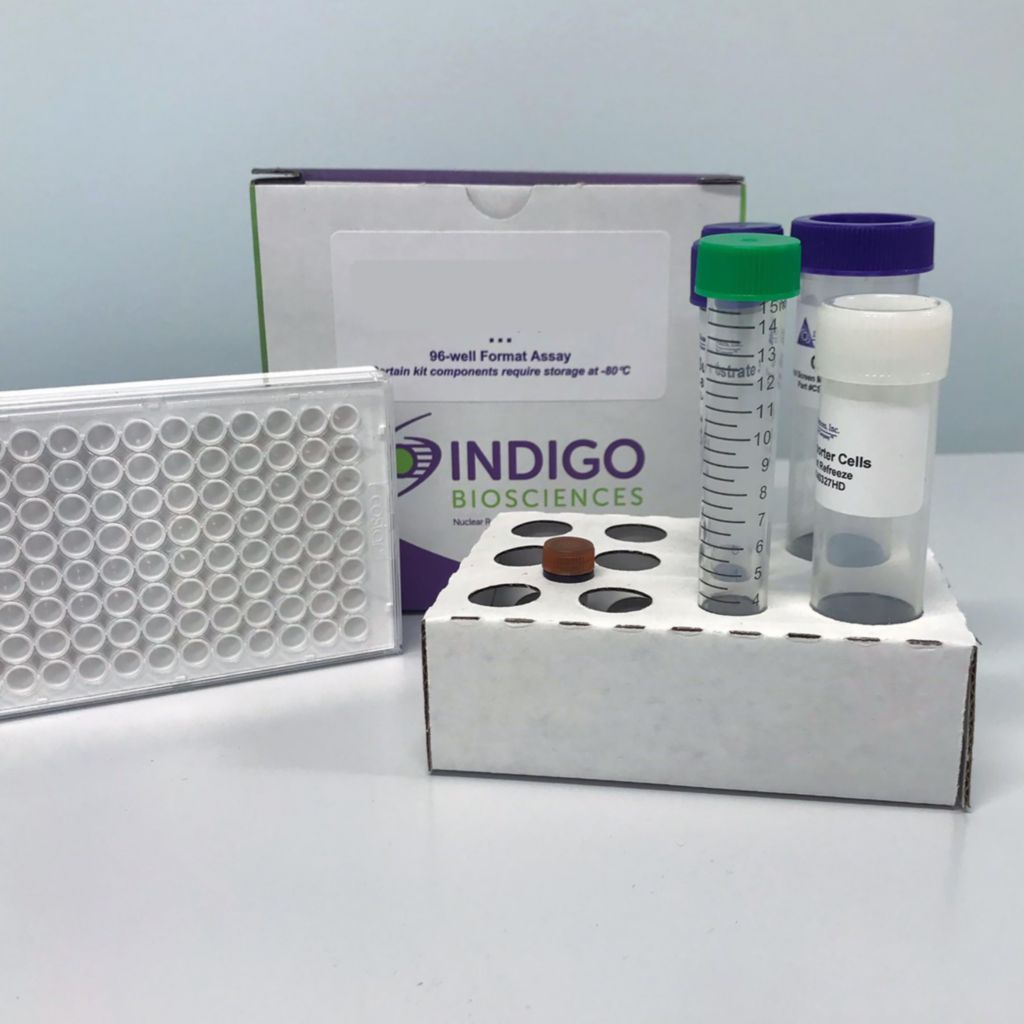Product Description and Product Data
This is an all-inclusive cell-based luciferase reporter assay kit targeting the Human Peroxisome Proliferator-Activated Receptor Alpha. INDIGO’s Human PPAR alpha reporter assay utilizes proprietary mammalian cells that have been engineered to provide constitutive expression of the Human PPAR alpha. In addition to PPAR alpha Reporter Cells, this kit provides two optimized media for use during cell culture and in diluting the user’s test samples, a reference agonist, Luciferase Detection Reagent, and a cell culture-ready assay plate. The principal application of this assay is in the screening of test samples to quantify any functional activity, either agonist or antagonist, that they may exert against human PPAR alpha. This kit provides researchers with clear, reproducible results, exceptional cell viability post-thaw, and consistent results lot to lot. Kits must be stored at -80C. Do not store in liquid nitrogen. Note: reporter cells cannot be refrozen or maintained in extended culture.
Features
Ready to Use Upon Receipt
- Includes All Needed Components
- Contains Transfected Reporter Cells
- Eliminates Cell Licensing Fees
- Clear, Reproducible Results
- Consistent Results Lot to Lot
Product Specifications
| Target Type | Nuclear Hormone Receptor | ||
| Species | Human | ||
| Receptor Form | Hybrid | ||
| Assay Mode | Agonist, Antagonist | ||
| Kit Components |
| ||
| Shelf Life | 6 months | ||
| Orthologs Available | Yes | ||
| Shipping Requirements | Dry Ice | ||
| Storage temperature | -80C |
Data
Target Background
Peroxisome proliferator-activated receptor alpha (PPAR alpha), also known as NR1C1, is a nuclear receptor protein encoded by the PPARA gene. PPAR ligands, whose names derived from their effect on inducing an increase in the size and number of peroxisomes, include hypolipidemic drugs, herbicides, leukotriene antagonists, and plasticizers. Peroxisomes are subcellular organelles found in plants and animals that contain enzymes for respiration and for cholesterol and lipid metabolism. The action of peroxisome proliferators is thought to be mediated via specific receptors, called PPARs, which belong to the steroid hormone receptor superfamily. PPARs affect the expression of target genes involved in cell proliferation, cell differentiation and in immune and inflammation responses. Three closely related subtypes (alpha, beta/delta, and gamma) have been identified. Multiple alternatively spliced transcript variants have been described for PPARα gene, although the full-length nature of only two has been determined.
INDIGO’s PPAR alpha Reporter Assay Systems utilize proprietary mammalian cells engineered to express human PPARA, commonly referred to as PPAR alpha.
The principle application of this assay product is in the screening of test samples to quantify functional activities, either agonist or antagonist, that they may exert against the human peroxisome proliferator-activated receptor alpha.
Citations
Also available as a service

